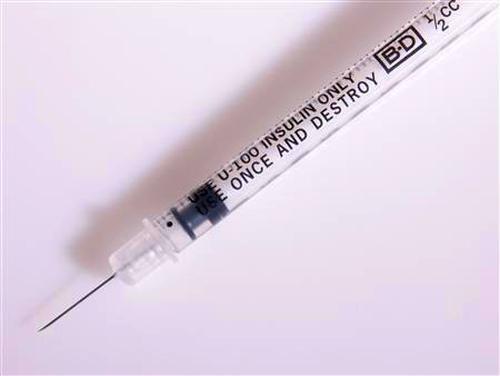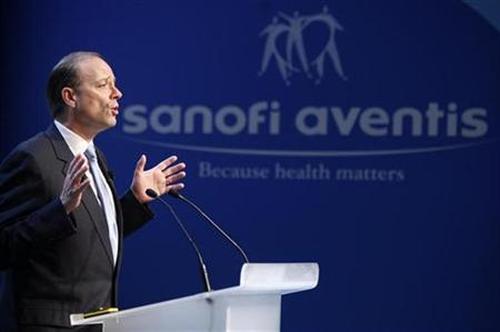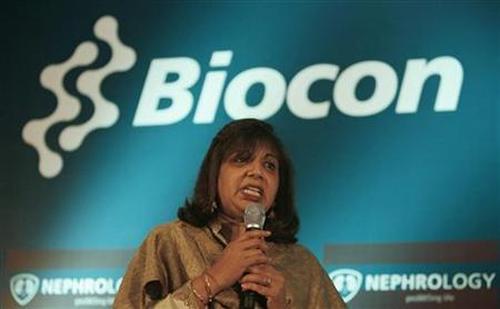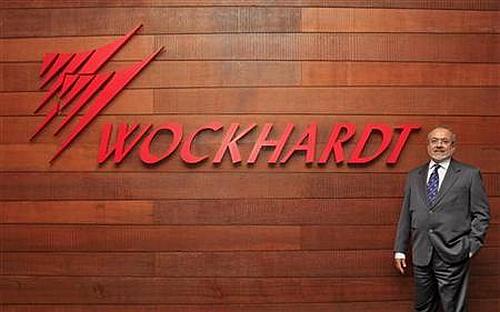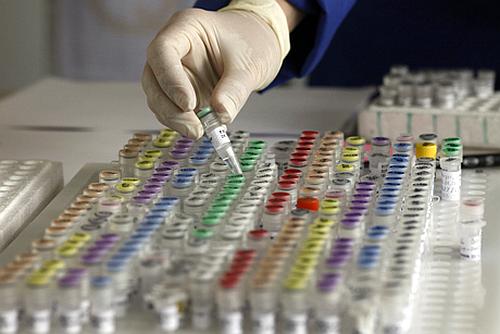 | « Back to article | Print this article |
Why govt lets MNCs sell insulin at a higher price
The fight between insulin makers and India's drug price regulator, the National Pharmaceutical Pricing Authority, over differential pricing for Indian and foreign manufacturers, is getting more intense.
After Eli Lilly, Biocon and Wockhardt, the latest challenge has come from Torrent Pharmaceuticals.
The Ahmedabad-based company has questioned a 2012 order by the drug regulator asking it to cut prices by around 17 per cent.
The discontent in the Indian insulin market has been simmering for some time now. At the heart of it is the complex set of rules and regulations that govern insulin pricing in the country.
While domestic insulin makers come under direct price control, companies that import and sell are prescribed a profit margin over the cost of production.
Industry experts and medical practitioners say the current price of imported insulin is 20-30 per cent higher than that produced domestically.
In any other market, this ought to have driven consumer towards the cheaper Indian option.
But insulin is sold only on prescription - diabetics never experiment with insulin. So, the demand for insulin is price-inelastic.
This, obviously, has not gone down well with Indian companies. Because they get higher prices, multinationals, they argue, make better profits and are able to spend more on marketing their insulin with doctors.
Click NEXT to read more...
Why govt lets MNCs sell insulin at a higher price
This distorts the playing field. They also allege the dual pricing policy was hampering the growth of the Indian insulin makers.
The product, they say, requires a lot of investment. Legal battles, therefore, have almost become the norm for the industry whenever a company wants its prices to be raised.
The two camps
There are a number of stakeholders in the Rs 1,140- crore (Rs 11.40 billion) insulin market.
The industry itself is divided into two lobbies: the multinationals such as Novo Nordisk, Eli Lilly and Sanofi, who dominate the market, and the domestic players such as Biocon and Wockhardt who are developing insulin from biosimilars.
The consumers, amid all this, who pay through their nose for their daily shot of the drug, have little say. They pick the drug their doctors prescribe.
There are 70 million people in India who suffer from diabetes and around four million take insulin shots daily.
"Insulin is required by 15-20 per cent of the total diabetics in the country and this need is constantly increasing," says Anoop Misra, chairman, Fortis-C-DOC centre for diabetes and metabolic diseases.
However, there are very few domestic companies who manufacture the drug. The demand is mostly met through imported insulin from multinationals such as Eli Lilly, Novo Nordisk and Sanofi.
Click NEXT to read more...
Why govt lets MNCs sell insulin at a higher price
"There is a clear monopoly in this segment. While there are a couple of Indian companies manufacturing insulin now, it is still multinationals which decide the pricing as the market is dominated by them," says Misra.
Danish drug maker, Novo Nordisk, has a 58 per cent share of India's insulin market, followed by other foreign players, Eli Lilly and Sanofi (14 per cent each).
Indian companies Biocon, Wockhardt and few others together hold only 14-15 per cent of the market.
Domestic players want a level playing field. "We are working under a thin marketing margin, whereas multinationals are able to push for a bigger market share because they have huge premiums on their products to support marketing," Biocon chairperson and managing director Kiran Mazumdar-Shaw had told Business Standard recently when NPPA imposed two separate price ceilings, one each for domestic and imported insulin products.
Shaw says multinationals have a leeway as their products are priced higher than those manufactured indigenously.
"The government should put a common ceiling price on every drug under price control without discriminating between the imported and domestic varieties," she says.
Click NEXT to read more...
Why govt lets MNCs sell insulin at a higher price
Her views find echo with Wockhardt chairman Habil Khorakiwala.
He says, "Domestic companies make investments in the country and build facilities and the government is favouring multinationals by giving a higher price to imported products. They are enjoying huge premiums."
The regulator is nowhere close to addressing the concerns. It says it does not have the wherewithal to assess the actual cost of production for imported insulin.
Consequently, it caps the price of imported products based on the landed cost declared by multinational companies and allow a maximum allowable post manufacturing expense (MAPE) on it, as prescribe in Drugs Price Control Order, 1995.
Superior imports?
"While we allow MAPE of up to 100 per cent of the cost of production to domestic companies, in case of multinationals, we have already brought it down from 50 per cent to 35 per cent," says NPPA Chairman CP Singh.
He says the price difference between domestic and imported insulin is to a large extent justified as there are additional costs attached to shipment and logistics for the multinationals.
Multinationals argue that their products are superior to those manufactured domestically.
Click NEXT to read more...
Why govt lets MNCs sell insulin at a higher price
"We spend a lot on research and innovation, which has a cost attached to it. The products sold by multinationals are far better in terms of technology," says a senior executive of a foreign drug manufacturer.
Doctors, too, agree to that. Misra says: "Imported insulin is often technologically far superior to that manufactured indigenously."
But everybody agrees that there is a case for monitoring the price of insulin. "Insulin is a product of mass consumption and there are various players in the market. Therefore, it is important to have a level playing field as far as pricing is concerned. If the product is the same, why should one have differential pricing based on brands?" asks Singh.
Doctors say, in view of the rising demand for insulin in the country, there is a pressing need for the government and the regulator to bring the prices down.
"The newer insulin products and analogues are costlier than older ones and out of reach for many patients," says Misra.
Consumers are left with little choice. With new and expensive insulin being introduced in the market, many complain that the older and the cheaper ones are just not available.
"The margins are higher on the newer insulin and doctors also prescribe them, so there is usually a very low stock of old products," says an industry expert.
